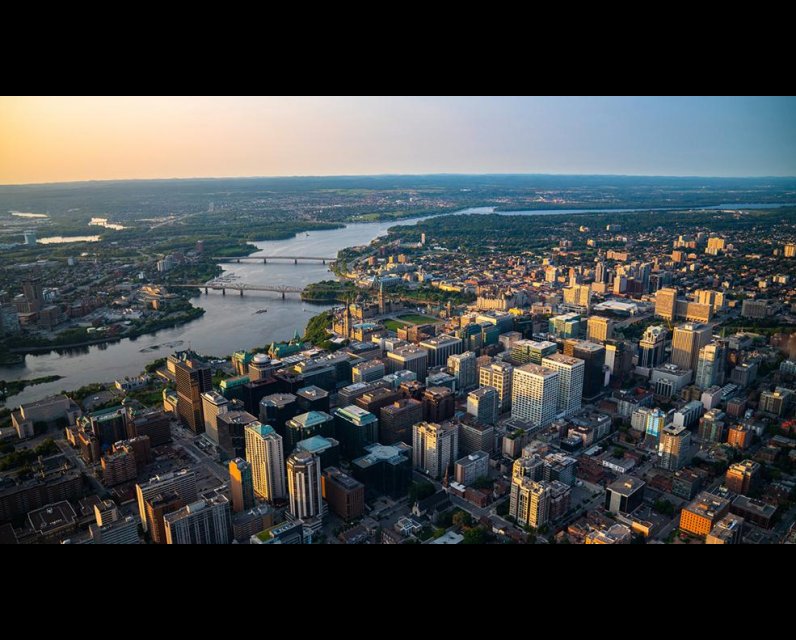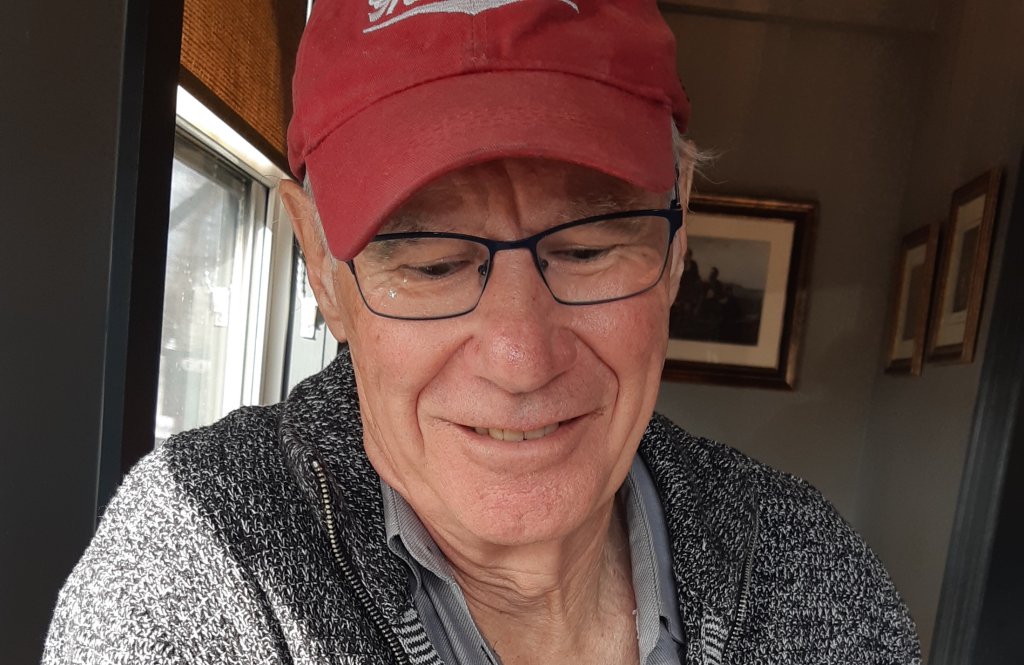Unpublished Opinions
Clive Doucet is a distinguished Canadian writer and former Ottawa city councillor. He was elected for four consecutive terms from 1997 to 2010 when he retired to run for Mayor. As a city politician he was awarded the Gallon Prize as the 2005 Canadian eco-councillor of the year. He was defeated twice by Jim Watson in 2010 and 2018 when he ran for the Mayor’s chair.
The Watsonics, Part VI: Ottawa and Uruk

"[Ottawa is] lovely in so many ways and has been for a very long time. The confluence of the Gatineau, Rideau and Ottawa rivers have made it a green, rich, and natural meeting place, bringing people to it from the four directions of the compass, North, South, East and West. It was a meeting place for Indigenous people, and it is today for Canada. It deserves our respect and care."—Clive Doucet
You probably are thinking how could I have been so naïve? Why didn’t you rant more? In my defence, I ranted more than I wanted. Some things are bigger than any individual. Cities are one of them. Jane Jacobs spent her life protesting and writing, trying to convince people that they needed to take cities more seriously.
Nonetheless, she was a mentor to many, and I was determined to follow in her footsteps. I also wrote a book about cities titled ‘Urban Meltdown: Cities, Climate Change and Politics as Usual’. It was an easy book for me to write at a young age, I had studied ancient cities, their economies, poets and poetry. I wanted to try and decipher why some cities lasted and some didn’t.
The prosperity of the city of Uruk where the idea of the modern city was first invented depended on three pillars:
- Trade--It was a port via the Euphrates River;
- Agriculture--It was the centre of a rich agricultural valley; and
- Religious centre--It acted as a religious centre for the surrounding region;
On these three pillars the city reposed happily for several thousand years, growing and changing constantly, declining, only when the Euphrates switched course leaving it landlocked. Once this happened canal trade stopped. It was impossible to irrigate nor drain the surrounding land.
Uruk lasted longest as a religious centre. Sumerian in its written language persisted like Latin did in the west among priests and scholars for centuries after it disappeared as a spoken language. The world’s first epic poem was written in Sumerian about Gilgamesh, the mythic first king, but its final edit was made by a Babylonian scholar, when Sumerian had already been lost as a spoken language for centuries. The poet begins Gilgamesh with a description of his city. Five thousand years later, you can still feel the poet’s excitement as he describes Uruk.
“See how its ramparts gleam like copper in the sun.
Climb the stone staircase, more ancient the mind
Can imagine…
Observe the land it encloses: the palm trees, the gardens,
The orchards, the glorious palaces and temples, the shops,
And marketplaces, the houses, the public squares.”
Walk on the wall of Uruk,
follow its course around the city,
inspect its mighty foundations…
Does Uruk not sound like a pleasant place to live? Contemporaries thought so too. Uruk at its height housed about 50,000 people, a literate culture and a rich festival and artisanal life. The Gilgamesh epic has the first account of the Biblical Flood and deals with all the themes that have preoccupied human beings ever since – the desire for immortality, romance and bromance, ideals of courage, fame and reflections on life’s purpose. At its heart though, Gilgamesh is the story of how a young King made the long voyage from someone who ruled ‘his’ city not with violence, to someone who ruled through conversation and consensus. Gilgamesh is the world’s first mayor. Uruk is not the democracy of Pericles at this point in history, but the world is now slowly moving in that direction.
Equally fascinating was reading ‘Inanna, the Queen of Heaven and Earth’ translated by the modern poet Diane Wolkstein and Samuel Noah Kramer. Of all the wonderful things that have been dug up in the Levant, there is nothing more wonderful that the clay tablets on which the poems ‘Gilgamesh’ and ‘Inanna’ are inscribed. In ‘Inanna’ pages are devoted to listing the qualities and capacities the God Enki has given his daughter in order for Uruk to become a city. Together Gilgamesh and Inanna describe the great transition from a neolithic village that had begun to happen in the Levant about 11,000 years ago. A modern city dweller would recognize Uruk with its political structure, trades, services, public culture and a landscape of streets and squares. Here is a brief excerpt from Ianna.
“He gave me the holy tavern.
He gave me the art of the hero.
He gave me the craft of woodworker,
Copper worker, Scribe, Smith, Leather worker,
Fuller, Builder, Reed worker etc.
He gave me the perceptive ear, travel,
counselling, heart soothing, the giving of judgements,
The making of judgements (law) etc.
The foundational pillars of Ottawa are not that different from ancient Uruk. Ottawa is also on the banks of a mighty river. All of Ottawa’s drinking water still comes from that river and should it ever disappear, or the water quality be rendered undrinkable as happened for Uruk, the consequences would be just as devastating. No great city can exist without lots of clean, accessible water.
The second Urukian pillar of agriculture has also been Ottawa’s. Ottawa was founded at the centre of a vast, rich agricultural valley. Lansdowne Park was donated to the city by rich farmers in 1868 as an agricultural exhibition park, and until World War II agriculture was by far the Ottawa Valley’s greatest employer.
As for canal building, the technology of 19the century Canada was different from Uruk. Uruk’s engineers didn’t have dynamite or iron tools to cut and create their canals, but canals created trade wealth for both cities. The Rideau canal opened up the agricultural hinterland of the Rideau watershed to the city and connected Ottawa to Kington, and the trade of the Great Lakes. Both Uruk and Ottawa were religious centres. All the major Christian churches built great temples to their faith in Ottawa as did the Urukians to their Gods.
Today, religion in Ottawa has been replaced by federal politics which functions in much the same way religion once did providing essential services and concentrating intellectual capital around decision making.
Uruk was a beautiful city but so is Ottawa. It’s lovely in so many ways and has been for a very long time. The confluence of the Gatineau, Rideau and Ottawa rivers have made it a green, rich, and natural meeting place, bringing people to it from the four directions of the compass, North, South, East and West. It was a meeting place for Indigenous people, and it is today for Canada. It deserves our respect and care.
Ottawa is a very young national capital, but it has the chance to be a great one and should be. It’s why despite leaving the city, I can’t forget or regret my failure to bring Lansdowne Park and the streetcars back. The regret has nothing to do with not being Mayor but that I failed to do something that I was supposed to do.
Indigenous people talk about not forgetting your original instructions. I felt these tasks were part of my original instructions and nothing has ever been able to change that feeling.
Clive Doucet served as Capital Ward’s City Councillor from 1997 to 2010. He ran for Mayor twice in 2010 and 2018. His last book is Grandfather’s House, Returning to Cape Breton. The Watsonics is a nine part political memoir being published in instalments, here first on Unpublished.ca.
More in this series...
The Watsonics, Preface: A Hard Slap >
The Watsonics, Part I: Walking Through the Door >
The Watsonics, Part II: Looking Back >
The Watsonics, Part III (a): Battle at the Ol' Cattle Castle >
The Watsonics, Part III (b): Amalgamation Squashes Democracy >
The Watsonics, Part IV: Grandfather's Farm >
The Watsonics, Part V: Reality Vs. Idealism >



Comments
Be the first to comment